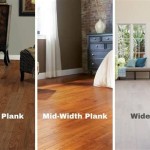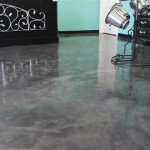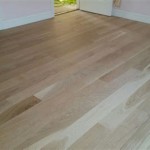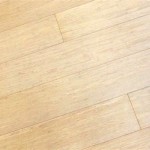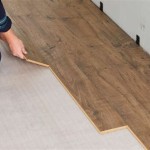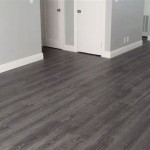Vinyl Plank Flooring In Kitchen: Pros And Cons
Vinyl plank flooring has become increasingly popular for kitchens due to its durability, affordability, and ease of maintenance. However, it is essential to consider both the pros and cons before making a decision whether this flooring is suitable for your kitchen.
Pros:
Durability: Vinyl plank flooring is highly durable and can withstand heavy foot traffic, making it an excellent choice for busy kitchens. It is resistant to scratches, dents, and stains, ensuring a long-lasting floor.
Waterproof: Unlike hardwood or laminate flooring, vinyl plank flooring is entirely waterproof, making it ideal for kitchens where spills and moisture are common. This feature prevents water damage and mold growth.
Easy to Clean and Maintain: Vinyl plank flooring is easy to clean and maintain. Regular sweeping or mopping with a mild cleaning solution is sufficient to keep it looking its best.
Affordability: Vinyl plank flooring is more affordable than other flooring options, such as hardwood or tile, making it a budget-friendly choice for kitchens.
Cons:
Not as Natural-looking: Vinyl plank flooring may not have the same natural look and feel as hardwood or stone flooring. However, advancements in technology have resulted in vinyl plank flooring that closely resembles natural materials.
Can Be Slippery: When wet, vinyl plank flooring can be slippery, posing a potential safety hazard. Installing anti-slip mats or choosing a textured finish can mitigate this issue.
Susceptible to Heat Damage: Vinyl plank flooring can be damaged by excessive heat, such as from a dropped pot or a hot appliance. Using protective mats under appliances and avoiding placing heat sources directly on the floor can prevent damage.
Limited Resale Value: Vinyl plank flooring may not add as much value to your home as other flooring options, such as hardwood or tile. However, it can still provide a durable and attractive floor for your kitchen.
In conclusion, vinyl plank flooring offers several advantages for kitchens, including durability, waterproofness, easy maintenance, and affordability. However, it is essential to consider its potential drawbacks, such as its slightly less natural appearance, potential slipperiness, and susceptibility to heat damage. By weighing these pros and cons, you can determine whether vinyl plank flooring is the right choice for your kitchen.

Pros And Cons Of 5 Popular Kitchen Flooring Materials

The Risks And Disadvantages Of Vinyl Flooring City Floor Supply Blog

Vinyl Flooring Pros And Cons Forbes Home

Hardwood Vs Luxury Vinyl Plank Flooring The Creative Kitchen Co

Vinyl Vs Laminate Flooring Pros Cons And Differences Forbes Home

Vinyl Flooring And Floor Tiles The 8 Pros Cons
%2022340_BarnhouseOak_Weathervane_RS-23.jpg?strip=all)
Luxury Vinyl Flooring Pros Cons America

8 Reasons You Should Consider Luxury Vinyl Plank Flooring

Luxury Vinyl Flooring Pros And Cons

What Is Rigid Core Flooring And Should You Get It
Related Posts


